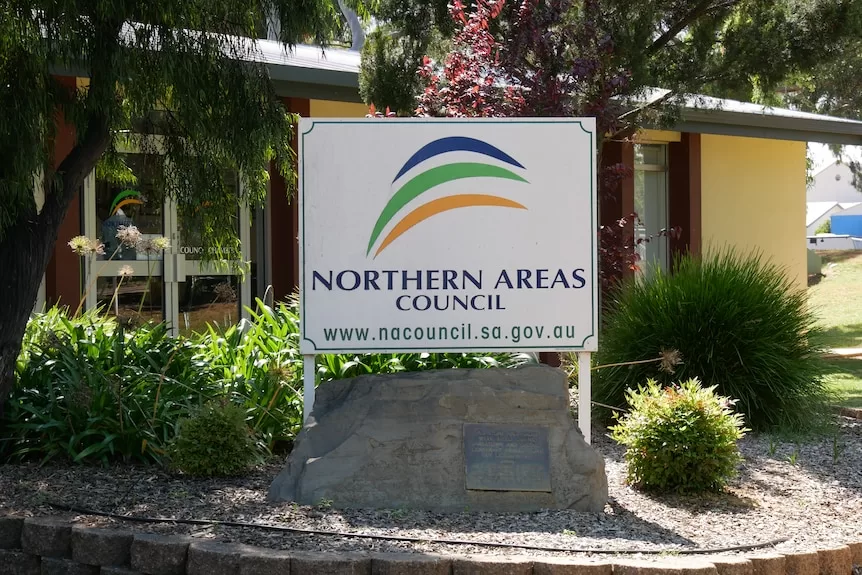A regional council’s decision to remove an Acknowledgement of Country from its correspondence has been labelled “hurtful” and “disgusting” by members of the Aboriginal community.
Key points:
- A council in regional South Australia has voted to remove the Acknowledgement of Country from documents
- The decision has been criticised by an Aboriginal leader
- It comes as other councils in Western Australia consider altering or removing their acknowledgements
Adnyamathanha elder Vince Coulthard criticised Northern Areas Council’s decision to delete the Acknowledgement of Country, a statement recognising and expressing respect towards the Traditional Owners of the land.
Ngadjuri elder Parry Agius said he was disappointed and feeling at a loss.
“[I’m] feeling that Ngadjuri people are not wanted in that place, in that region,” Mr Aguis told ABC Mornings.
“The reason behind an Acknowledgement is really about acknowledging that there were Aboriginal people before the area was colonised, and there are Aboriginal people who are now wanting to come back into the region for work, for play, for pleasure, for reconciliation, and now it’s dampened that approach.”
Deleted from documents
The elders’ reaction came after Northern Areas councillor Hank Langes moved a motion without notice at a meeting on November 21 to “delete the Acknowledgement of Country and banner on correspondence”, which was seconded by fellow councillor John Barberien and supported by other councillors.
Cr Langes and Cr Barberien declined to comment on their support for the motion.
Northern Areas Council Mayor Sue Scarman declined to comment on the move and said it was “a decision of council and we have to abide by that decision”.
She said it was unclear whether the motion would impact any future Welcome to Country or Acknowledgement of Country delivered in-person at council events.
Mr Agius said while an Acknowledgement of Country might sometimes “feel bland”, it was still important.
“Our ancestors are in that space and by actually acknowledging the statement, our ancestors are connecting to that statement and the people who are making that Acknowledgement,” Mr Agius said.
“So it’s not lost, that relationship is still going.”
Reconciliation at risk
Mr Coulthard, who won a NAIDOC Lifetime Achievement Award in 2010 and was named SA Local Hero in 2015, said the council’s decision was racist.
“I think it’s absolutely disgusting that the council that represents the interests of the council’s electorate area can just not acknowledge the First Nations people,” he said.
“I think it’s outrageous, one could see this kind of thing happening.
“It’s a racist attack, actually, on First Nations people.”
Mr Coulthard said the move was a big step backwards for reconciliation.
“I think there’s no room for reconciliation once this kind of thing happens,” he said.
Emerging trend
The decision comes as two local governments in regional Western Australia consider the future of their Acknowledgement of Country.
The Shire of Harvey will consider abolishing the practice of acknowledging Aboriginal custodians of local lands before council events and scrapping Welcome to Country ceremonies.
The councillor behind the proposal, Craig Carbone, had said the recent rejection of the Voice to Parliament showed there had been a shift in attitude on the issue.
Councillors from the nearby City of Bunbury also voted against its new Acknowledgement of Country in July, with one stating they did not want a blanket recognition of everyone in the Aboriginal community because there were some who were “not pure”.
Earlier this year, Kangaroo Island Mayor Michael Pengilly said Acknowledgement of Country statements were “overdone”.
Find more local news
Browse for your location and find more local ABC News and information
